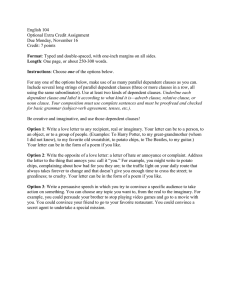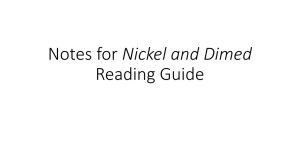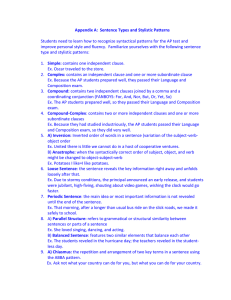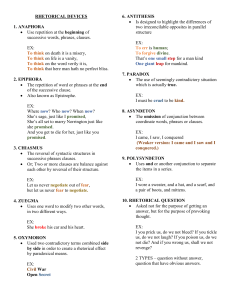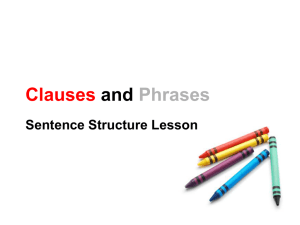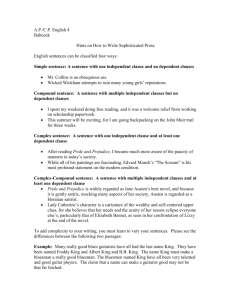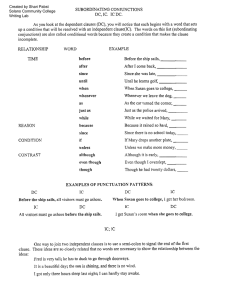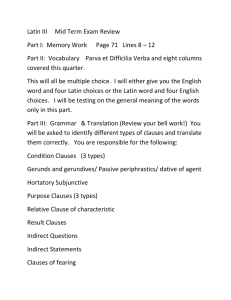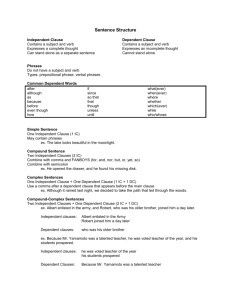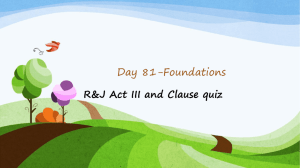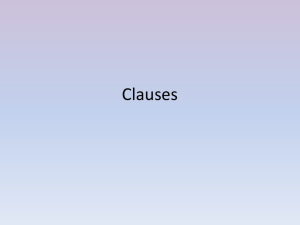SYNTAX - Schemes and Tropes
advertisement
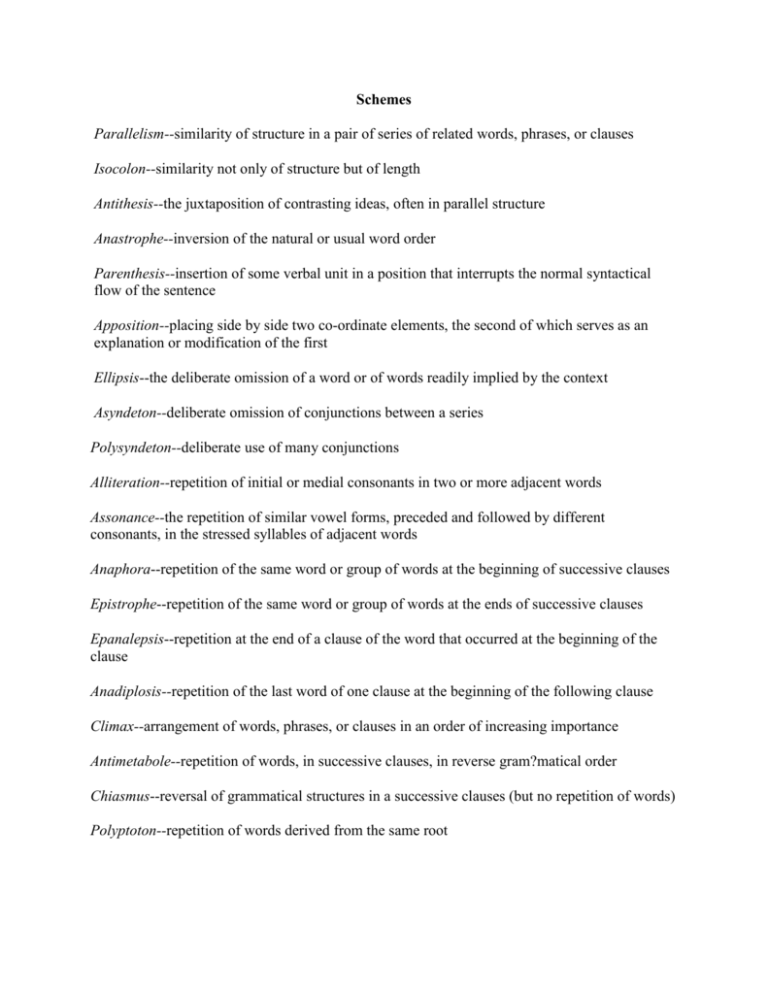
Schemes Parallelism--similarity of structure in a pair of series of related words, phrases, or clauses Isocolon--similarity not only of structure but of length Antithesis--the juxtaposition of contrasting ideas, often in parallel structure Anastrophe--inversion of the natural or usual word order Parenthesis--insertion of some verbal unit in a position that interrupts the normal syntactical flow of the sentence Apposition--placing side by side two co-ordinate elements, the second of which serves as an explanation or modification of the first Ellipsis--the deliberate omission of a word or of words readily implied by the context Asyndeton--deliberate omission of conjunctions between a series Polysyndeton--deliberate use of many conjunctions Alliteration--repetition of initial or medial consonants in two or more adjacent words Assonance--the repetition of similar vowel forms, preceded and followed by different consonants, in the stressed syllables of adjacent words Anaphora--repetition of the same word or group of words at the beginning of successive clauses Epistrophe--repetition of the same word or group of words at the ends of successive clauses Epanalepsis--repetition at the end of a clause of the word that occurred at the beginning of the clause Anadiplosis--repetition of the last word of one clause at the beginning of the following clause Climax--arrangement of words, phrases, or clauses in an order of increasing importance Antimetabole--repetition of words, in successive clauses, in reverse gram?matical order Chiasmus--reversal of grammatical structures in a successive clauses (but no repetition of words) Polyptoton--repetition of words derived from the same root Tropes Metaphor--implied comparison between two things of unlike nature Simile--explicit comparison between two things of unlike nature Synecdoche--figure of speech in which a part stands for the whole Metonymy--substitution of some attributive or suggestive word for what is actually meant Antanaclasis--repetition of a word in two different senses Paronomasis--use of words alike in sound but different in meaning Syllepsis--use of a word understood differently in relation to two or more other words, which it modifies or governs Anthimeria--the substitution of one part of speech for another Periphrasis (antonomasia)--substitution of a descriptive word or phrase for a proper name or of a proper name for a quality associated with the name Personification (prosopopoeia)--investing abstractions for inanimate objects with human qualities or abilities Hyperbole--the use of exaggerated terms for the purpose of emphasis or heightened effect Litotes--deliberate use of understatement Rhetorical question--asking a question, not for the purpose of eliciting an answer but for the purpose of asserting or denying something obliquely Irony--use of a word in such a way as to convey a meaning opposite to the literal meaning of the word Onomatapoeia--use of words whose sound echoes the sense Oxymoron--the yoking of two terms which are ordinarily contradictory Paradox--an apparently contradictory statement that nevertheless contains a measure of truth From: Corbett, Edward P.J. Classical Rhetoric for the Modern Student, 3rd Edition; 1990
